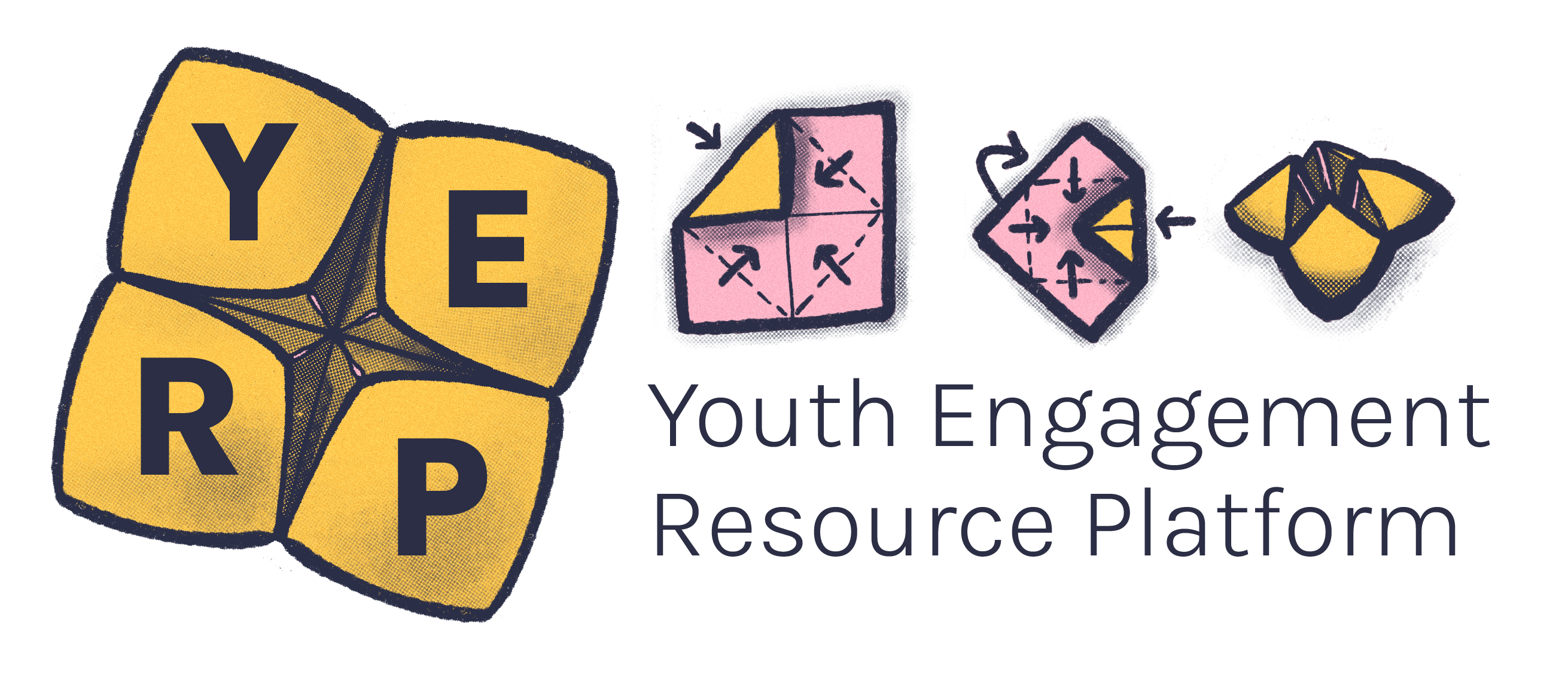If you’re interested in working to support and advocate with young people, then we say: good on you!
While we don’t offer youth work certification, placements or traineeships at YACVic, we can provide great advice and information for anyone looking to kickstart their career as a youth worker.
The Australian Youth Affairs Coalition (2013) defines Youth Work as…
“A practice that places young people and their interests first. Youth work is a relational practice, where the youth worker operates alongside the young person in their context. Youth work is an empowering practice that advocates for and facilitates a young person's independence, participation in society, connectedness and realisation of their rights”.
A full breakdown of the definition, with notes from AYAC’s Policy Advisory Council can be found here.
Youth work places young people and their interests first, regardless of all the other competing interests. The young person, with their consent, is the main focus of the youth worker.
Relationships are the foundations for youth work. Establishing trusted and respectful relationships with the young people that youth workers engage with allows them to do the work they do so well. It places them as trusted people in the young person’s lives, which helps achieve positive outcomes for the young person.
It’s also about improving and supporting the relationships they have with their families, friends, communities and broader society so they can thrive in their environments.
As we know, context matters! By working alongside young people in their environments, youth workers gain an in-depth understanding of the context in which they live, work, play and exist.
This knowledge means their work is informed by place-based knowledge, contextual understanding and they can move forward with the young person with empathy and understanding.
Young people are often seen as passive recipients in their communities and when receiving services. Youth work challenges these ideas by working alongside the young person and embedding principles of youth participation in all aspects of their work.
Youth workers aim to empower young people and their voices. They support them in their independence and contributions as active members in their communities.
Like relationships, connections also form the foundations for youth work and youth workers help to facilitate the connections between young people and the environments and people they engage with.
Youth workers also focus on long term relationships for the young person, so they have strong and meaningful connections with their friends and family long after their work with the youth worker finishes.
The United Nations set out the Convention on the Rights of the Child and while this has been signing something or giving consent for something to make it officially valid.ratified in Australia, we know that the rights of young people are often not protected. Youth workers work to protect these rights and advocate for them when young people are left out of conversations about issues that directly affect them.
Youth work can focus on lots of areas, so there is something for everyone depending on your interests. Some of the main areas include:
- Mental Health
- Education and Training
- Employment
- Alcohol and other drugs (AOD)
- LGBTIQA+
- Housing and Homelessness
- Domestic and Family Violence
- Youth Justice
- Out-of-home Care
- Disability
- Youth Advocacy
- Life Skills
- Health
- Sport & Recreation
- Law
- Settlement
- Art, music & culture
This list is not complete, and youth work encompasses a range of generalist and specialist areas.
Youth workers are employed across several sectors and, as a result, they are not all covered by the same pay award. Salaries also vary within sectors based on the level of responsibilities, skills and experience.
While this makes it difficult to pin down the overall expected income for a youth worker, typical, entry-level, contracted rates are around $25 per hour, rising to over $30 per hour with qualifications and experience. Casual employees are paid at higher rates, but don’t accrue leave or taking time off instead of getting overtime pay.time in lieu. You can progress your career and salary by taking on more responsibility, such as leading teams or projects.
Awards to be aware of:
- Social, Community, Home Care and Disability Services Industry Award (SCHCADS)
- Victorian Local Authorities Award or Victorian Local Government Award 2015
Tip: Browse current employment vacancies
Have a look at what jobs are out there to get a sense of the salary ranges you can expect in the areas of youth work that interest you. This will also show you the kinds of qualifications, training and experience employers are looking for. Try EthicalJobs and Pro Bono Australia as starting points. Make sure to sign up for our newsletters; Announce to get new job vacancies sent to you and Signposts for rural and regional vacancies.
The level of qualification among youth workers varies.
Qualifications can include:
- Certificate III, Certificate IV or Diploma of youth work, all of which can all be studied at TAFE.
- There are tertiary diplomas and bachelor’s degrees in youth work on offer at universities.
- Postgraduate qualifications are also available.
For a full listing of youth work related courses offered in Victoria, visit the VTAC Course Search.
Free TAFE
TAFE Victoria offers a free, that’s right, FREE (!) Certificate IV in Youth Work.
Tip: Volunteer to check youth work is for you
Youth work can look and feel really different depending on the kinds of settings and organisations you work in. As a way of testing it out, we encourage you to get involved with organisations and programs working with young people. Volunteering is a great way to do it – you can find opportunities through Volunteering Victoria’s volunteer now search, or contact your local council’s youth service team to see if you can volunteer with them.
♫Upbeat music playing in background♫
Martha: We may not be doctors or we may not be surgeons,
but we are saving lives.
And we are playing that advocate role
when other organisations or other people
don't understand the life of a young person.
Maree: Youth Work is extremely unique.
If you work in disability, or drugs and alcohol,
or homelessness, you are kind of focused
on that specific field.
If you are a youth worker, you're covering every field.
Sione: I have such a great responsibility
to service these young people
and to make sure that I'm doing everything in my power
to help them in whatever way they need.
Tony: It's opening all those sorts of possibilities
for young people to see what there is for them.
Kieran: I love the young people I work with
from disadvantaged backgrounds
and it's a really great opportunity
for the wider community to see that
they're not gangsters, they're not thugs.
In fact, they're really valuable members of our community.
Patricia: Youth workers are the bridge for a lot of young people
that have severe or some serious disadvantages in life.
Tiffany: We won't give up on them.
We will be there to catch them and to lift up their voices.
Marita: Early intervention is really important
before the issues become really entrenched.
Cihan: The more they feel like they're alone
or no one understands them,
I think that's when it can lead to something [ah]
a lot more severe.
Hannah: The more time and effort and work
we put in to work with young people,
the better off our community will be.
Yumna: And by having more funding in the area
would mean that they can go,
"Hang on a minute, I am important.
That's why they're investing in me."
Caitlyn: Being impacted by a youth worker taught me
that you can really enjoy your job.
I don't think I would be a youth worker today
if I wasn't supported by one when I was younger.
Tiffany: Youth Work Matters because as a society
we have a responsibility to make sure
that young people everywhere are feeling supported
to reach their fullest potential.
Patricia: We are the bridge between young people
and the reality of life.
Maree: It gives young people a safe place to go
to get the real care that they need.
Kieran: Young people deserve to have a trusted adult
they can connect with.
Sione: The work that we are doing now with our youth
is only gonna benefit our future as a society.
Jay: Youth Work Matters because Young People Matter.
♫Slow music fades away♫
Youth workers recognise young people as experts in their own lives. They advocate for young people’s rights, support their voices, and provide strengths-based, holistic, place-based care so that young people can reach their full potential and thrive as active members of their community.
Youth workers often have lived experiences that enhance their work and connections with young people, providing young people with empathetic and safe support.
Other benefits of youth work include:
- Being the glue that connects systems together. For example, school to work transitions, employment opportunities and more.
- Supporting young people to choose and stay on positive pathways.
- Helping families, communities and institutions stick by young people.
- Helping young people become involved in decision making that affects them at all levels of government.
Prevention and early intervention are a key aspect to youth work. They make sure change can be made before an issue becomes a crisis.
If you’re interested, have a read about YACVic’s Youth Work Matters campaign.
Youth workers work in a range of different environments.
Many work in local governments and non-government organisations (NGO)/ not-for-profits (NFP). They also work in educational settings, as well as community groups in areas such as health, sport and recreation.
While prevention and early intervention are a key focus for many youth workers, there are other youth workers who focus on immediate crisis response. This can be in relation to instances such as young people struggling with homelessness and mental health issues.
There are also youth workers who work in organisations that target specific cohorts such as First Nations young people or disabled young people – emphasising the support that youth workers can give to marginalised communities and those who face discrimination.
As the peak body for young people and the youth sector, YACVic will always keep you updated about youth work issues.
Become a YACVic member
When you support YACVic as a member, you become part of a statewide network of individuals, key organisations and agencies within the youth sector. Membership is free for people under the age of 25. Join us now!
Sign up to Announce and Signposts
Announce is YACVic’s monthly newsletter which goes out on the first Thursday of every month, with specific sessions for metro, rural and regional opportunities, as well as state-wide opportunities as well.
Read by 4,000 young people and youth sector professionals, Announce is the go-to for staying on top of the latest news, events, training, jobs and other opportunities in the Victorian youth sector.
Signposts is our monthly newsletter for rural and regional Victoria and is usually sent out on the 3rd or last Thursday of every month. It's read by 2,000 young people and youth sector professionals, and has specific opportunities and events for rural and regional Victorians.
Blog - Tiffany's story: Creating positive pathways for young people through early intervention
Blog - Yumna's story: tirelessly working for young people in regional Victoria
Blog - Pattie’s story: Being the bridge for young people and the reality of life
This article was originally published as a blog post on the YACVic blog, you can read it here.





